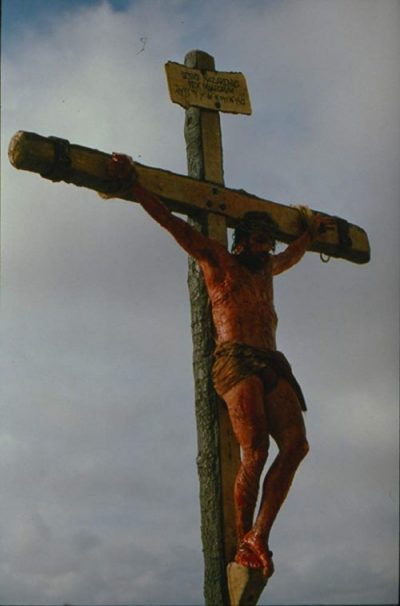
Insightful Things Ignorant People Said
Insight: to apprehend the true nature of a thing
Ignorance: lacking in knowledge or information; unaware
Holy Week is just two weeks away and our thoughts are turning toward the passion of Christ. In preparation for that season, I usually read through the gospels, seeking fresh insights and trying to step into the story. There is no missing the drama and high emotion of that week before Jesus’ death and like most believers, it never fails to touch my heart.
The gospel writers’ accounts of the last days and hours of Jesus’ life recall the ominous tension that filled Jerusalem that week before Passover. At least three players in this drama spoke profound spiritual truths without the faintest idea they were doing so. Their words, preserved in scripture, testify to the purposes for Christ’s death – our redemption.
- “…it is expedient for you that one man should die for the people, that the whole nation should not perish.” (John 11:50.) John records a volatile discussion between the chief priests and the Pharisees who were conspiring to have Jesus killed (John 11:47-52.) Caiaphas, the high priest, was a shrewd politician cautiously maneuvering between Pilate, the Jews, and his own power base. John puts his statement in a Christological context in the following verse: “Now this he did not say on his own initiative, but being high priest that year, he prophesied that Jesus was going to die for the nation; and not for the nation only, but that He might also gather together into one the children of God who are scattered abroad.” Caiaphas proclaimed God’s intent all along- that one Man would die for a nation and not just that nation, but for ALL peoples of the earth (see John 3:16.) Caiaphas did not realize that what he said was actually not an analysis of the current political situation but rather a prophetic statement regarding Jesus and His atoning death. Nor did he realize that his words would be recorded for all time, confirming God’s plan for redemption through Christ, His Son.
- “His blood be on us and our children!” (Matt. 27:25) Matthew records the interaction between Pilate and the raucous crowd, as Jesus stood before them. When Pilate finally declared, “I am innocent of this Man’s blood..” they responded with this cry. Who can read this and not shudder? History records the catastrophe that occurred in Jerusalem just forty years later (70 AD) at the hands of the Romans. Jesus foresaw this tragedy and had wept over His city and His people in Matt. 23:37-38, “….How often I wanted to gather your children together….but you were unwilling! Behold, your house is left to you desolate…” The judgement of God was visited on His people, due to their rejection of His Son and the prophets. Such irony! As contemporary believers we repeat the same words, but in prayer – for the blood of Christ to be on us and on our children – as a protection, as salvation and as provision for our sin.
- “He saved others; He cannot save himself” (Matt. 27:42.) The gospels record various interactions between the thieves, the Roman guards, the jeering crowd below and Jesus. Unknowingly, one of them succinctly declared for all posterity the substitutionary aspect of Jesus’ death. Though meant as a cruel insult, it was Truth – He would bear the wrath of God’s judgment in His own body, in order that we would not have to.
Three small stories, embedded in the larger story, contain powerful theological truths. The death of Christ was a sacrificial atonement for our sins, and each of these comments testify to that truth. These insightful comments were spoken in ignorance but were profoundly true. Its a reminder to us of God’s sovereignty over the events of Holy Week, and the story of His redemption. And we marvel – because we are part of that story, too.




